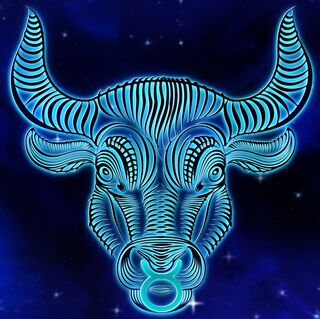Source: Myriams-Fotos/Pixabay
Astrology is an ancient practice that remains popular in many places in the world, including in the U.S. Indeed, nearly one in three American adults believe in astrology.
The word astrology comes from the Greek astron, meaning star. Astrology refers to the study of the movement, position, and other aspects of stars and planets with the aim of obtaining knowledge about human lives and future events.
Why do people believe in astrology? There is no simple answer. In general, people are drawn to astrological explanations or predictions during times of stress, confusion, and uncertainty. For instance, during times of social and political upheaval (e.g., revolutions, pandemics) or personal crisis (e.g., serious illness), many turn to astrology as a way to cope and feel life is controllable or at least predictable.
As for other drivers of individual difference of belief in astrology, factors such as age, gender, education, spirituality, thinking style, attitude, personality, and cognitive ability could play a role. This brings us to a recent study by Andersson and colleagues from Sweden, to be published in the March 2022 issue of Personality and Individual Differences, which suggests that belief in astrology is associated with higher narcissism and lower intelligence.
Why higher narcissism? Perhaps because the focus on the self and one’s special place in the universe appeals to narcissists. In addition, certain paranormal and superstitious beliefs—such as narcissists’ beliefs concerning their own supposed superior abilities (e.g., “I’m psychic”)—may also make narcissists feel special and superior.
And why lower intelligence? Potentially because belief in the paranormal is often associated with a lack of critical thinking. For instance, believers may assume supernatural causality for events and, due to lower intelligence and cognitive ability, fail to adjust their thinking when presented with empirical evidence to the contrary.
With this introduction in mind, it is time to examine the findings of the research by Andersson and collaborators, who evaluated the link between astrology, intelligence, and personality (particularly narcissism).
Investigating astrology, personality, and intelligence
The sample included 264 people, 87% of them women, with an age range of 25 to 34. They completed the following tests:
- The Belief in Astrology Inventory (BAI): Eight items selected from a list of 24; the items tap into beliefs concerning the importance of astrology and the influence of heavenly bodies on mood, behavior, and the future (e.g., relationship success).
- The IPIP-30 Personality Scale: 30 items used to measure the Big Five personality traits—i.e. agreeableness, conscientiousness, extraversion, neuroticism, and openness to experience.
- Short Dark Triad of Personality (SD3-Narcissism): The Short Dark Triad (SD3) has 27 items, with equal numbers assessing grandiose narcissism, psychopathy, and Machiavellianism. Only the nine items measuring narcissism were used in this investigation. For example, “I know that I am special because everyone keeps telling me so.”
- Intelligence was evaluated using the four three-dimensional rotation items (measuring visual-spatial reasoning) from the International Cognitive Ability Resource.

Source: Darkmoon_Art/Pixabay
The link between astrology, narcissism, and intelligence
Before discussing the results, I should make clear that for many people, learning about astrology and astrological charts (e.g., reading horoscopes) is a harmless hobby. For some, however, astrology is a deeply held belief. These individuals spend much time reading horoscopes and may spend a lot of money consulting astrologers and other diviners or fortune-tellers. Might those who hold such strong beliefs in astrology differ from the average person in important ways? Yes, according to this research, which found that higher belief in astrology is linked with higher narcissism.
Why?
The positive association between narcissistic personality and belief in astrology, the authors speculate, is due to the “self-centered worldview uniting them.” In addition, “cultural aspects of millennials may emphasize the uniqueness of individuals which might lead to a more egocentric view of the world, and thus relate to narcissistic traits.” Lastly, “Astrological predictions and horoscopes tend to be positively framed; this reinforces grandiose feelings and thus might appeal even more to narcissists.”
Narcissism Essential Reads
Analysis of the data also showed narcissists tended to assume erroneously that belief in astrology is supported by scientific evidence.
An additional finding was that intelligent people were less likely to believe in astrology, whereas agreeable ones were more likely to believe in it.
The reviewed study had a number of limitations, such as a lack of random sampling, participants being mainly young women, and the use of mostly shortened versions of the scales. Therefore, future research needs to replicate the present findings. Until then, we should refrain from drawing strong conclusions about belief in astrology and its association with higher narcissism and lower intelligence.
Nevertheless, as the authors argue, this is an important area of research, since belief in astrology may be correlated with belief in other pseudosciences and even conspiracy theories.
Facebook image: Dean Drobot/Shutterstock
